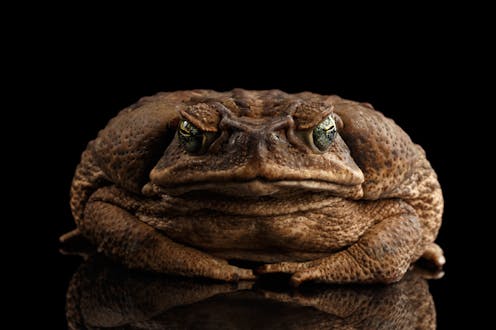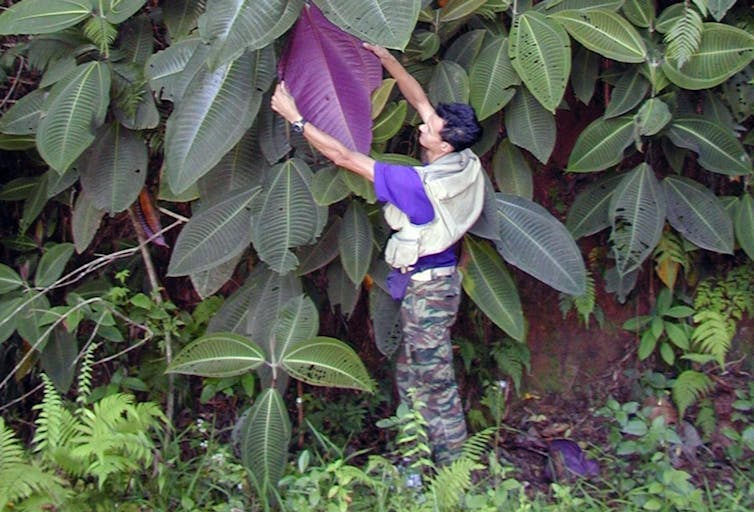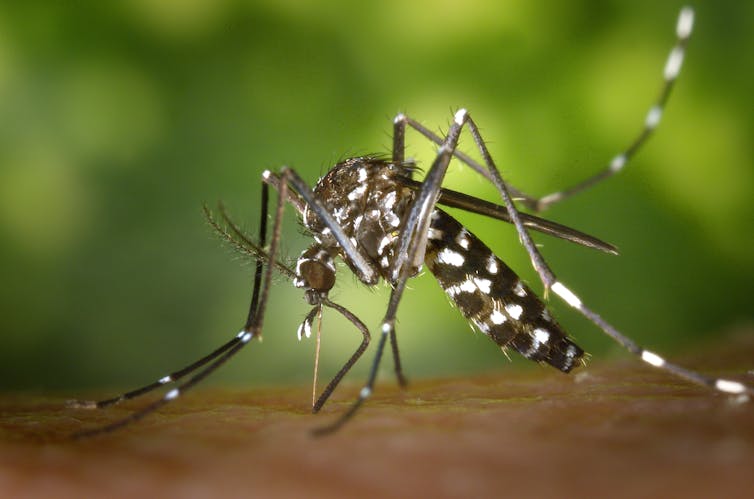
Earth’s habitats are facing a big increase in the number of alien species they have to deal with.
These are organisms transported beyond their original habitats as a result of human activities, where they survive and establish new populations. They’re sometimes called exotic, non-native or introduced species.
If current trends continue, there could be as much as a 36% increase in global alien species numbers by 2050, compared with 2005. The relentless pace at which alien species are being transported and introduced globally will alter ecosystems for centuries, if not millennia.
A subset of these species, termed invasive alien species, can have a catastrophic effect on biodiversity, human wellbeing and the economy.
But research by me and my colleagues suggests that there is still time to avoid the worst outcomes for Earth’s biodiversity and bring the rate of new biological invasions under control.
Once introduced, many alien species can thrive in their new environments and become integral parts of the local biodiversity, reshaping ecosystems for generations.
In some extreme cases, alien species can eventually dominate ecosystems. Data from a 2017 study revealed that Hawaiian flora comprised 1,586 native plant species and 1,488 aliens.
Unlike alien species, native species cannot increase in number beyond time scales set by their evolution. This ensures it is only a matter of time before alien plants outnumber native Hawaiian flora.

Invasive species in particular are the main driver of extinctions on islands. Over the past 50 years, they have cost over US$1.2 trillion (£1 trillion) in damage and management worldwide and led to between £5.4 billion and £13.7 billion in reported losses for the UK alone.
Invasive mosquitoes, such as the tiger and yellow fever mosquitoes, transmit deadly diseases including West Nile fever, dengue, Zika and Chikungunya.
The introduction of the Nile perch in Africa’s Lake Victoria in the 1950s was intended to boost local fisheries. It killed off multiple native species, spurred the increased transmission of HIV amongst local populations from fishers following the perch’s seasonal migration, and generated more frequent border conflicts for fishing rights.

Given how much damage invasive species can do to ecosystems and multiple aspects of society, it is important to understand what’s behind their proliferation so we can stem their spread and prevent them becoming entrenched. Like other environmental changes, biological invasions are largely determined by how people live and how society is organised.
Alien species were sometimes brought into new environments intentionally, for example to serve as game or to control other species. Sometimes they were brought unintentionally as stowaways or contaminants, such as seeds in the dirt clinging to boots or small organisms within a ship’s ballast. Sometimes human activity destroyed natural barriers, allowing species to spread through new corridors like the Suez and Panama canals.
What happens next?
A recent study I led found that international trade was the biggest driver of biological invasions, but that a country’s ability to implement policies to prevent and counteract them was also critical.
Effective governance meant alien species richness fell across most classifications of organisms. Past levels of trade and governance predicted present levels of biological invasions better than recent ones, which underlines the abiding consequences of decisions taken today.
Addressing biological invasions requires comprehensive action within and between countries. A new report by the UN’s Intergovernmental Science-Policy Platform on Biodiversity and Ecosystem Services has concluded that invasive alien species are likely to thrive unless there is international collaboration and coordination, driven by effective governance within countries and robust institutions.
Whereas climatologists can use computer models to project future scenarios for the climate based on CO₂ emissions, biologists have no equivalent for invasive species. In our study, we observed that while trade increased almost everywhere between 1996 and 2015, governance changes varied substantially between countries and continents, making it hard to pre-empt the unfolding invasive species problem with a high degree of accuracy.
To account for these uncertainties, we developed several scenarios for invasive species based on different sets of socio-economic changes globally and in Europe.
These range from scenarios in which countries eschew cooperation but maintain lightly regulated trade and preside over a rising number of invasions to high levels of regulation and regional and global governance, fostering low or stable levels of biological invasions. These scenarios will be tailored to the different regions of the world in the future.
This suggests that while invasions have already caused substantial damage, the future outcome is still largely ours to decide.

Don’t have time to read about climate change as much as you’d like?
Get a weekly roundup in your inbox instead. Every Wednesday, The Conversation’s environment editor writes Imagine, a short email that goes a little deeper into just one climate issue. Join the 20,000+ readers who’ve subscribed so far.
Guillaume Latombe was funded through the 2017-2018 Belmont Forum and BiodivERsA joint call for research proposals, under the BiodivScen ERA-Net COFUND programme and with the funding organisation FWF (project no I 4011-B32).
This article was originally published on The Conversation. Read the original article.







